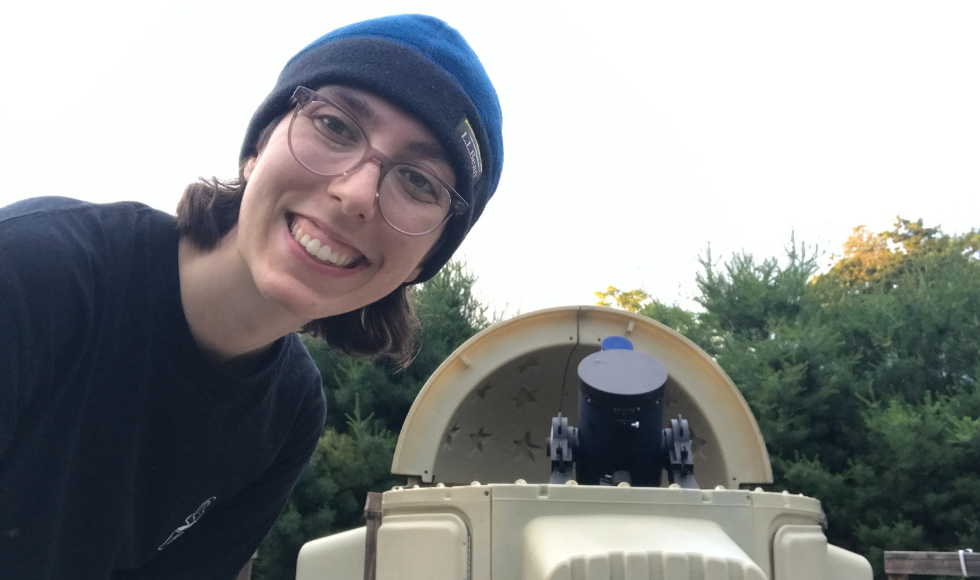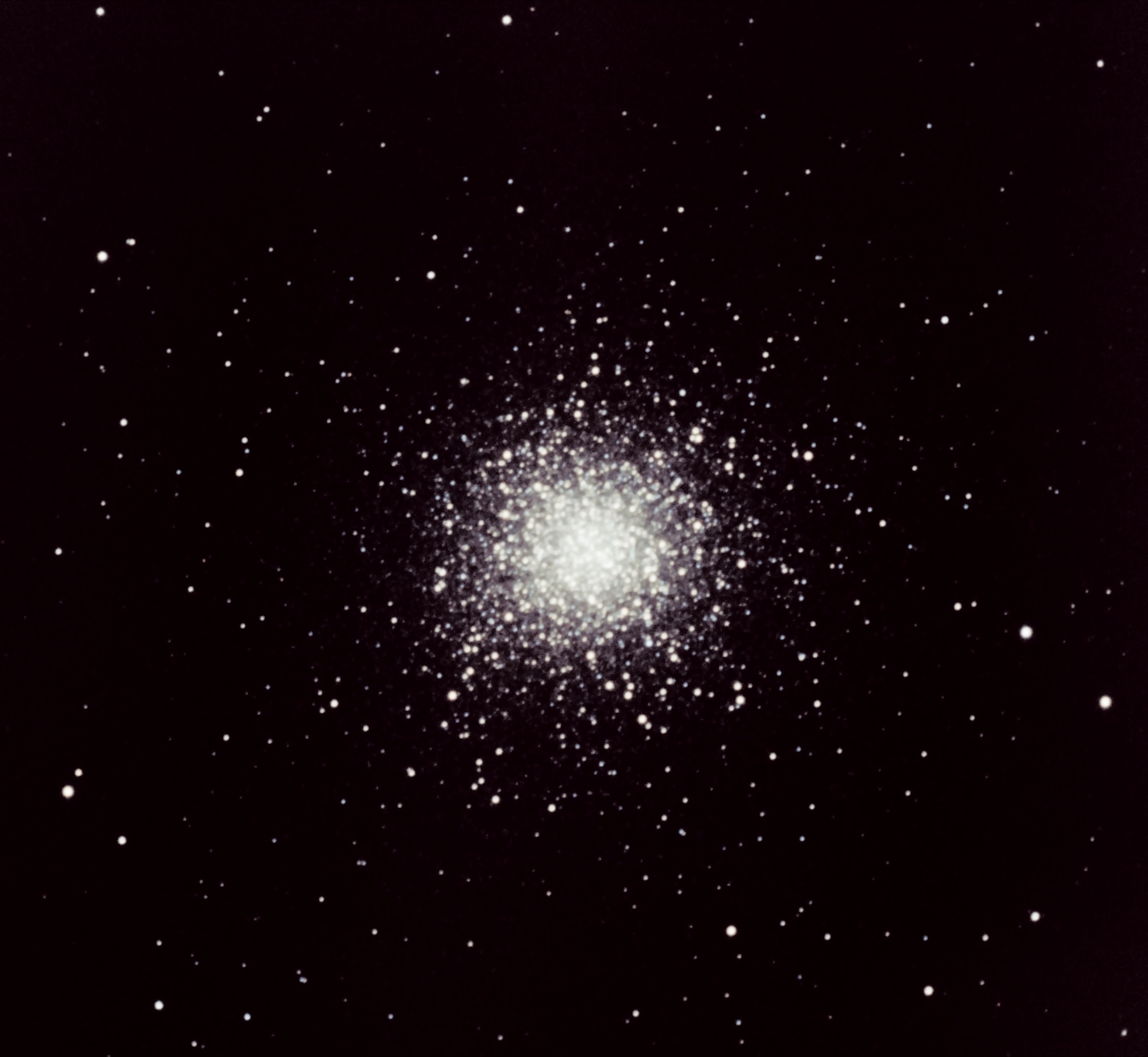Astronomy grad student takes a star turn in Killarney Provincial Park

Astronomy PhD candidate Veronika Dornan served as the astronomer in residence at Killarney Provincial Park. She'll be back again in October when the nights are longer (and bug free). Dornan has delivered dozens of talks and shows at the W.J. McCallion Planetarium and in the community. (Photos by Veronika Dornan)
Veronika Dornan followed up the April 8 total solar eclipse with another awe-inspiring celestial moment.
This time, the astronomy PhD candidate wasn’t cheering alongside thousands of people at McMaster — she was alone with a telescope in the heart of Killarney Provincial Park just before midnight.
Dornan had the park’s telescope pointed at one of the hundreds of globular star clusters that make up the Milky Way. She was seeing light from thousands of stars that had travelled more than 10,000 years to reach the Earth.
This time there was no cheering: All she could say was a quiet “wow”.
Dornan drove five hours north to spend a week at Killarney Park as the astronomer in residence. part of an outreach program run by the park in collaboration with the Allan I. Carswell Observatory at York University.
Dornan applied because the program combines her two favourite things — astronomy and the great outdoors. While she’s a lifelong camper, hiker and canoeist, it was her first trip to Killarney.
Bruce Waters, who’s taught astronomy to the public since 1981 and co-founded Stars over Killarney, warned Dornan that once she went to the park, she wouldn’t want to go anywhere else.
The park lived up to the hype. Everywhere she looked was like a painting, something “a certain Group of Seven had already thought many times over.”

She spent her days hiking the Granite Ridge, Crack and Chikanishing trails and kayaking on George Lake. At night, she went stargazing with campers — or at least tried to. The weather didn’t cooperate most evenings — instead of looking through the park’s two domed telescopes, Dornan improvised and gave talks in the amphitheatre beneath cloudy skies.
Dornan has delivered dozens of talks over the years in McMaster’s W.J. McCallion Planetarium and out in the community, but “it’s a bit more complicated when you’re talking about the stars while at the same time fighting for your life against swarms of bugs.”
When the campers called it a night and the clouds parted, Dornan spent hours observing the stars. “I seriously messed up my sleep schedule.”
She also gave astrophotography a try during her residency, capturing images of the Ring Nebula and the Great Hercules Cluster.

“People assume astronomers take their own photos. I needed quite a lot of guidance for how to take the images. It took a while to fiddle with the image properties, but I got my images.”
Dornan’s been invited back for another week-long residency in bug-free October, when longer nights offer more opportunities to explore and photograph the final frontier.
She’s aiming to defend her PhD thesis early next summer, then build a career that continues to combine research and outreach.
“Research leads to new discoveries which gives you exciting things to talk about. And if you’re not connecting with the public then what’s the point of doing research?”

